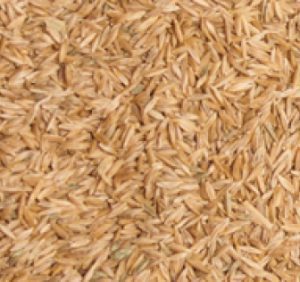As a lawn care operator dealing with clients who have heavy clay lawns, it’s crucial to provide expert advice and services to help them achieve a healthy and thriving lawn. Here are some things to discuss with your customers for handling clay-heavy properties.
Soil Testing
Around our corporate headquarters in Fishers, Indiana, the subdivisions tend to have lawns heavy in clay with no topsoil and high pH, low potassium, and phosphorous. We encourage clients to perform a soil test on their customers’ properties so we can determine the specific needs of their clay soil, like where those nutrient and pH values are. Once we know that, we can start applying sulfur to lower the pH over time and increase the potassium and phosphorous levels with 0-0-60 and 11-52-0 applications.
Aeration Services
Offer core aeration services. Aeration helps alleviate soil compaction, improve air circulation, and enhance water infiltration. Perform aeration during the growing season when the grass can recover quickly.
Topdressing with Compost
Recommend topdressing the lawn with well-composted organic matter. This practice adds valuable organic material to the clay soil and enhances its structure over time.
Mulching Clippings
Encourage clients to leave grass clippings on the lawn after mowing. These clippings decompose and contribute organic matter to the soil.
Proper Mowing Height
Advise your clients to mow their lawns at the proper height (around 3 inches for most grass types). This height encourages deep root growth and helps shade the soil, reducing moisture evaporation.
Overseeding
Offer overseeding services to help thicken the lawn. Choose grass seed varieties well-suited for clay soil and consider using a slit seeder for better seed-to-soil contact.
Fertilization
Develop a fertilization plan based on soil test results. We recommend using an organic-based fertilizer like Nature Safe if it’s within budget. Chicken manure-based fertilizers are also very beneficial if Nature Safe is not an option.
Irrigation Management
Educate clients on proper watering practices. Clay soil retains moisture well, so watering deeply but infrequently is essential to encourage deep root growth. You might also consider offering a wetting agent like Precision Laboratories Precip G. Precip G helps water penetrate the hard clay surface and reduce runoff, making your client’s irrigation more efficient, especially on the sides of sidewalks, curbs, and steep slopes.
Regular Maintenance Schedule
Create a lawn care schedule for your clients that includes aeration, dethatching (if necessary), fertilization, and weed control. Regular maintenance is crucial for long-term lawn health.
Educate About Compaction
Teach clients about the dangers of soil compaction, especially in high-traffic areas. Offer solutions such as pathways or stepping stones to divert foot traffic.
Monitor Progress and Be Patient
Keep track of your clients’ lawn progress over time. Regularly assess the soil condition and grass health, adjusting your services as needed. Emphasize that improving clay soil takes time and consistent care.
By offering comprehensive lawn care services tailored to clay-heavy soils and educating your clients on best practices, you’ll build trust and help them achieve a beautiful, healthy lawn.












